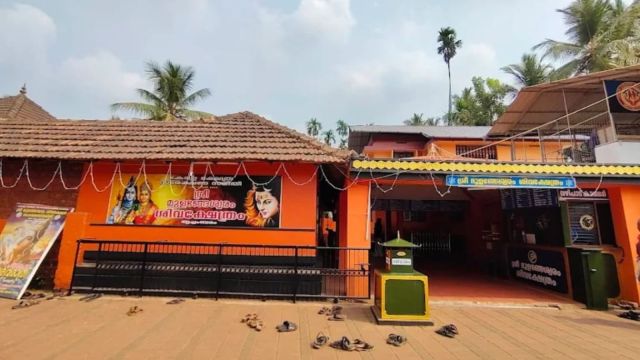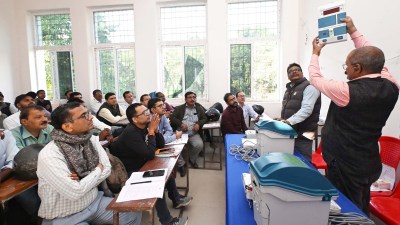Kerala temple takeover row: SC issues notice to Malabar Devaswom Board; freezes appointment of Executive Officer
The dispute dates back to 2010, when the Malabar Devaswom Board decided to hand over the temple’s administration to an Executive Officer overseeing Chirakkal Kovilakam temples. The move was stalled following opposition from the Samithi and local residents.
 The Taliparamba Kshetra Samrakshana Samithi claims to have managed the temple for over four decades. (File)
The Taliparamba Kshetra Samrakshana Samithi claims to have managed the temple for over four decades. (File)The Supreme Court has ordered status quo on the appointment of an executive officer for the Mulangeswaram Shiva Temple in Trichambaram, Kasargod, amid allegations that the Kerala government-controlled Malabar Devaswom Board is attempting to take over the shrine’s management.
Hearing a plea by the Taliparamba Kshetra Samrakshana Samithi, which claims to have managed the temple for over four decades, a bench of Justices Vikram Nath and Sandeep Mehta on October 16 issued notice to the Board and directed that “until further orders, status quo shall be maintained with regard to the appointment of the Executive Officer.” This means the temple will continue to be administered by the Samithi for now.
The appeal, filed through senior advocate P B Krishnan and advocate Sarath S Janardanan, challenges a June 18 Kerala High Court order that dismissed the Samithi’s plea against the Board’s move. The Samithi argued that it has been administering the temple since 1979, when it was entrusted to them by the Chirakkal Royal Family, the temple’s traditional custodians.
“Thereafter, the temple was renovated and it was administered by the petitioner… Ever since the petitioner herein started to manage the Temple, it has been properly and effectively managing the temple without any complaints from any corner. Under the management of the petitioner herein, the temple has become one of the most famous temples near Trichambaram Temple in Kannur District of Kerala,” the Samithi contended in its plea.
The dispute dates back to 2010, when the Malabar Devaswom Board decided to hand over the temple’s administration to an Executive Officer overseeing Chirakkal Kovilakam temples. The move was stalled following opposition from the Samithi and local residents.
In 2018, the Board appointed its nominee, M Giridharan, as Executive Officer after cancelling the previous appointment. The Samithi alleged this was an attempt by members of the “ruling political party…to take away the management of the temple from” it.
According to the plea, the new official “came to the temple with the assistance of a large number of police men to take over the administration of the temple” but was prevented by Samithi members and locals. “The executive officer informed that based on a direction by the Hon’ble High Court, the proceedings for taking over of the temple were initiated. However, when he was asked to produce the order of the Hon’ble High Court, the executive officer failed to produce the same and the police men also realised the foul play… and withdrew from the scene,” the petition stated.
The Samithi also cited another example, alleging that a Vishnu temple located about a kilometre away and earlier managed by a public committee was taken over by the Board and is now “in a dilapidated condition” with “no daily poojas.”
The appeal contended that while the Kerala High Court Division Bench had itself noted that the Chirakkal Kovilakam Devaswom “had admitted that the control over the administration of the temple was lost at some point of time,” it still held that the “Samithi cannot claim any right or interest in the properties of the said temple, including the right of administration.”
The petition further argued that the Mulangeswaram Shiva Temple “is admittedly not a listed temple under Section 38 of the Madras Hindu Religious and Charitable Endowments Act, 1951,” and therefore “the respondents had no authority to take over” its management or administration.



- 01
- 02
- 03
- 04
- 05



























